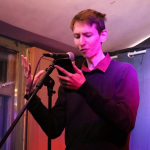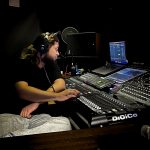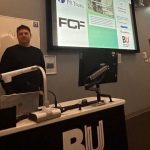Produced by kdanceydowns
 Whether you’re studying for a BA, an MA, a PHD, or any qualification really, you’ll want to swot up on your knowledge before the course begins. About four months before my MA began I was emailed a long list of books that were on the recommended reading list. On first impression I was slightly anxious – I’m a fast reader but I don’t tend to do a lot of it – so I began to narrow down the number of books I was going to get through over the summer.
Whether you’re studying for a BA, an MA, a PHD, or any qualification really, you’ll want to swot up on your knowledge before the course begins. About four months before my MA began I was emailed a long list of books that were on the recommended reading list. On first impression I was slightly anxious – I’m a fast reader but I don’t tend to do a lot of it – so I began to narrow down the number of books I was going to get through over the summer.
Out of a list of about 30 books, I narrowed it down to six that I was going to purchase and read before the course began (see below for tips on how I narrowed it down). I found them from various websites, all second-hand, and instead of costing me £150 brand new, I ended up only spending £32.
All things begin with good intentions, but I quickly realised that even six books was a lot to read – and academic books are often not as gripping as Harry Potter, or as entertaining as… well, most other things. However, when I applied for the MA it was in the promise to myself that I would try my absolute hardest, and once I got back into the mind-set of a student I found that it was much easier to settle down in bed 30 minutes earlier than usual and read another chapter.

Those six books became the backbone of most of my essays on the course, and once the course began I used the library as a resource for bulking out my references without having to fork out any more money for books.
Something I did, which I am forever grateful to my past-self for, is that I made notes and used sticky tabs to label any interesting quotations or references that might come in useful. Blue tabs meant that there was an interesting quotation, and yellow tabs meant that there was a certain bit of theory that I thought might be useful. Before long I had a whole catalogue of references, and I have gone back to this many times while writing essays. Seriously, it might sound like the nerdiest thing ever, but do it! It’s so much easier to reference as you read, and your future-self will thank you for it!

Tips for building your reading list
Amazon is your friend
I first began by searching for each book on Amazon; how much was it? What review did it get? Is it available digitally? This really helped me to find the best of the bunch, and the reviews were often left by either students or people in the industry, so it really helped to gauge whether it was particularly useful or worth owning. Even if you don’t order the book through Amazon, it’s a great research tool.
BU Library
If you live close enough to the BU Talbot Campus before you begin studying, then take a tour and check out the library resources. Most, if not all, of the books on the reading lists are stocked in the library, meaning you only have to buy the books you really, really want to own.
SUBU
The Students’ Union at BU offers a book buying service – where you can pick up second-hand books from previous students for much cheaper than brand new. If you already have some old books then why not take them along and see if you can make some money to put towards your latest books.
Book Swap
If you know of anyone else studying the course, then perhaps arrange to buy different books so that you can share them. You won’t have to worry about borrowing deadlines in the library, and you’ll spend much less. Plus you might want to annotate any interesting quotations and share them with your course mate, and vice versa!
By Alice White









